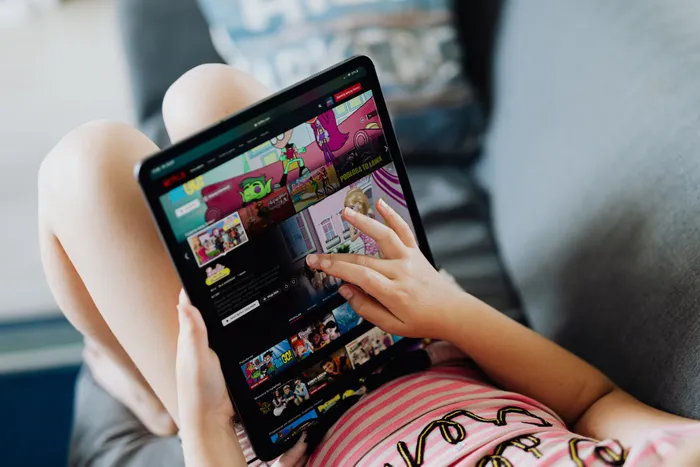What is all this screen time doing to children’s brains?

The NIH study also reported that more than seven hours of screen time a day was associated with changes in the brain. Picture:Pexels/Karolina Grabowska
New research from Drexel’s College of Medicine suggests that young children who watch a lot of TV or videos may develop unusual behaviours related to their senses.
These children might seem uninterested in regular activities, crave more excitement, or be easily upset by things like loud noises or bright colours.
Published in the journal JAMA Pediatrics earlier this month, the study indicates that kids exposed to more screen time by age two could leave them more prone to seek or avoid intense sensory experiences by the time they are almost three years old.
These habits are linked to how well their bodies handle sensory information such as what they hear or see.
Dr Jane Smith, one of the study’s lead researchers, explained: “Watching too much television can affect the way children notice and react to the world around them.”
Previous studies, including a landmark project by the National Institutes of Health, have found similar results.
Children with more screen time have shown delays in learning and thinking abilities.
The NIH study also reported that more than seven hours of screen time a day was associated with changes in the brain’s cortex, which matters for reasoning and decision-making.
Parents completed a special questionnaire called the Infant/Toddler Sensory Profile to help researchers understand the effects on the children’s sensory processing.
This study adds to the growing concern about screen time and its impact on children’s development. It’s becoming clear that limiting screen time in the early years could be important for their growth and health.
Findings reported in the journal JAMA Pediatrics suggest a strong link between screen exposure and unusual behaviours related to how children experience their surroundings.

The researchers used a tool called the Infant/Toddler Sensory Profile (ITSP) to classify children’s behaviours as “typical, high or low”, based on sensory activities such as reacting to noise, seeking stimuli or avoiding sensations.
Higher or lower scores indicate different sensory experiences for the child in comparison to what’s considered average.
“Simply put, too much screen time early on could make children more likely to develop intense reactions to sensory experiences, or on the flip side, show less interest or awareness of them,” said Dr Jane Smith, one of the study’s authors.
The survey of caregivers broke down screen exposure at various ages by asking if children watch TV and DVDs and, if so, how many hours per day.
The data indicated a worrying trend
At one year, children with any screen viewing had more than double the risk of developing atypical sensory behaviours by 33 months.
Each additional hour of screen time at 18 months was linked with a 23% increase in such behaviours.
An extra hour at two years old was connected to a 20% hike in behaviours such as sensation seeking or avoiding.
Adjustments were made in the research for factors including age, pre-term birth, caregiver education, race/ethnicity, and the child's physical activity.
Experts point out that these sensory behaviours could have implications for a child's learning and social interactions. “Our findings support the idea that parents should be cautious about screen time in these early years,” noted the authors of the study.
Experts in fields like psychology, neuroscience, and even education study our senses -like sight, hearing, touch, taste, smell, and even other less-known ones like balance and body awareness - to understand how what we sense shapes our behaviour.
Sensory behaviour implications are basically the effects that what we sense has on how we behave.
People can have different reactions to the same sensory experience, which can lead to a wide variety of behaviours based on individual sensitivities and preferences.
A broader context provided by a Pew Research Center survey notes a significant number of teens are virtually online "almost constantly," and those with over three hours of social media use daily are at double the risk for mental health issues.
Given these associations, it's suggested that toddlers showing sensory-related symptoms could benefit from reduced screen time.
If you want to ensure that your family uses social media safely and healthily, here's some straightforward advice that might make a difference:
Make a family social media rulebook
Sit down and decide how your family should use social media. Some things to discuss might include how much time everyone can spend online, what kind of websites are okay to visit, and how to keep your personal information safe.
The Academy of Pediatrics has a helpful guide to get you started.
Keep screen time short for little ones
For kids under two years old, too much screen time isn't great. The exception might be video chatting with family, as it's a bit like playing and talking with someone in real life. For kids between two and five, try to keep screen time to just one hour a day.
Say no to gadgets in certain places.
Research shows that looking at screens for over two hours at night can mess with your sleep by affecting a hormone called melatonin.
To help everyone sleep better, turn off all phones, computers, and TVs at least an hour before bedtime. Instead, you could read a book, have a bath, or do something else calming.
Show your kids how to use social media wisely
Remember, your kids are always watching and learning from you. Set an example by not spending too much time on your own social media.
And when you do use your phone or computer, explain to your kids what you're doing. It's a chance to teach them about using technology in a smart way.
Related Topics: